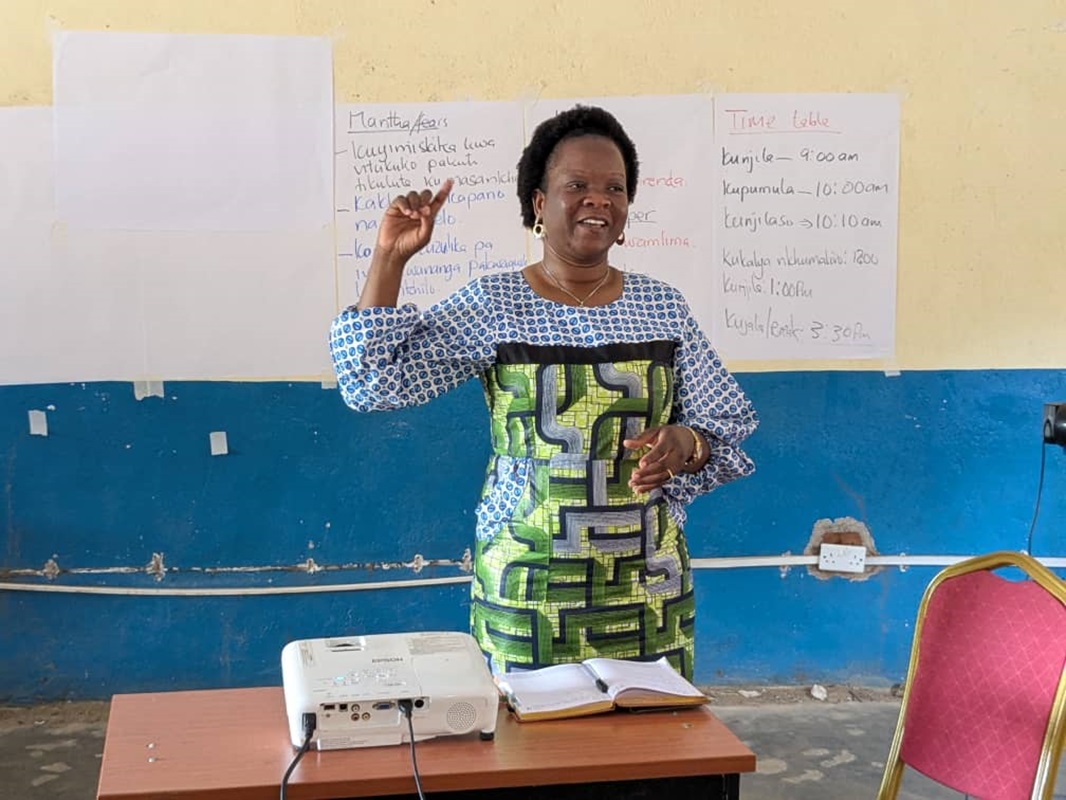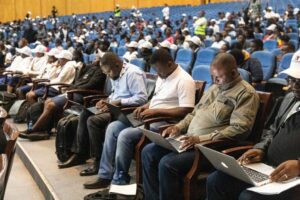
Training facilitator, Lusungu Mangochi
* Training focused on dwellers’ communities’ rights, environmental protection and mining governance
* The knowledge gap amongst members of the committees affected the committees’ effectiveness
* The committees were created to be a voice for their communities in mining-related issues but they were not properly trained on their roles
By George Mponda, MANA
In cognizance of the knowledge gap being faced by members of mining committees in Karonga, Evangelical Association of Malawi (EAM) yesterday trained the stakeholders on their responsibilities to ensure that communities and the country as a whole benefit from natural resources.

Advertisement
Conducted with support from the Norwegian Church Aid (NCA) and Dan Church Aid (DCA), the training — under the theme; ‘Fighting Inequalities Through Local and Mining Governance’ — focused on dwellers’ communities’ rights, environmental protection and mining governance.
EAM’s projector coordinator for Karonga, Lusungu Mangochi said the knowledge gap amongst members of the committees affected the committees’ effectiveness, adding that they “were created to be a voice for their communities in mining-related issues but they were not properly trained on their roles”.
“This orientation is important because it has empowered them to serve communities better than before. “The training has covered mining legal frameworks, equitable benefit sharing mechanisms and conflict resolution skills among others.
“We have also introduced them to the environmental and social impact assessment (ESIA) process, so that they monitor and participate meaningfully in mining activities.”

Mangochi added that the mining sector falls within pillar number two of the MW2063 national vision, which is industrialisation and is in line with Sustainable Development Goals 1 and 9 — which emphasise poverty reduction and industrialisation, hence the need to enhance inclusiveness in the sector.
Chairperson for Senior Chief Wasambo Mining Committee, Spencer Mwalweni said the training was long overdue: “This engagement has clarified many issues that previously left communities vulnerable in so far as mining is concerned.
“For years, communities in Karonga District, which is rich in minerals, have not been benefiting from such resources — since they did not know their mandate in the mining activities and this training is an eye-opener.”
Karonga hosts several open pit mines including Kayelekera Uranium Mine and coal mines at Nkhauti Kasikizi, Lusikwa, Hara and Towo.

Kayelekera Mine in Karonga
Meanwhile, Minister of Mining, Kenneth Zikhale Ng’oma, says soon mining will go digital and that technology will be in the hands of youths, pledging a youth-led future for Malawi’s mining industry.
He made the remarks at the 2025 National Youth Summit in Lilongwe yesterday, where he highlighted government’s renewed commitment to put young people at the centre of the mining sector’s growth.


Ng’oma emphasised that the government is now prioritising youth involvement in the every stage of the mining value chain, empowering them to turn ideas into real economic gains for themselves.
“Like never before, the mining sector is putting young people in charge,” he said, adding that past lessons have paved the way for a modern, technology-driven mining industry.
He stressed that by embracing innovation and digital tools, Malawi’s youth will play a key role in driving sustainable national development and creating jobs for their peers.



Advertisement
